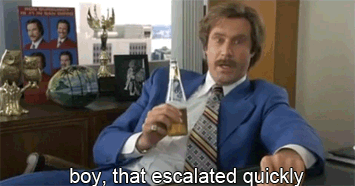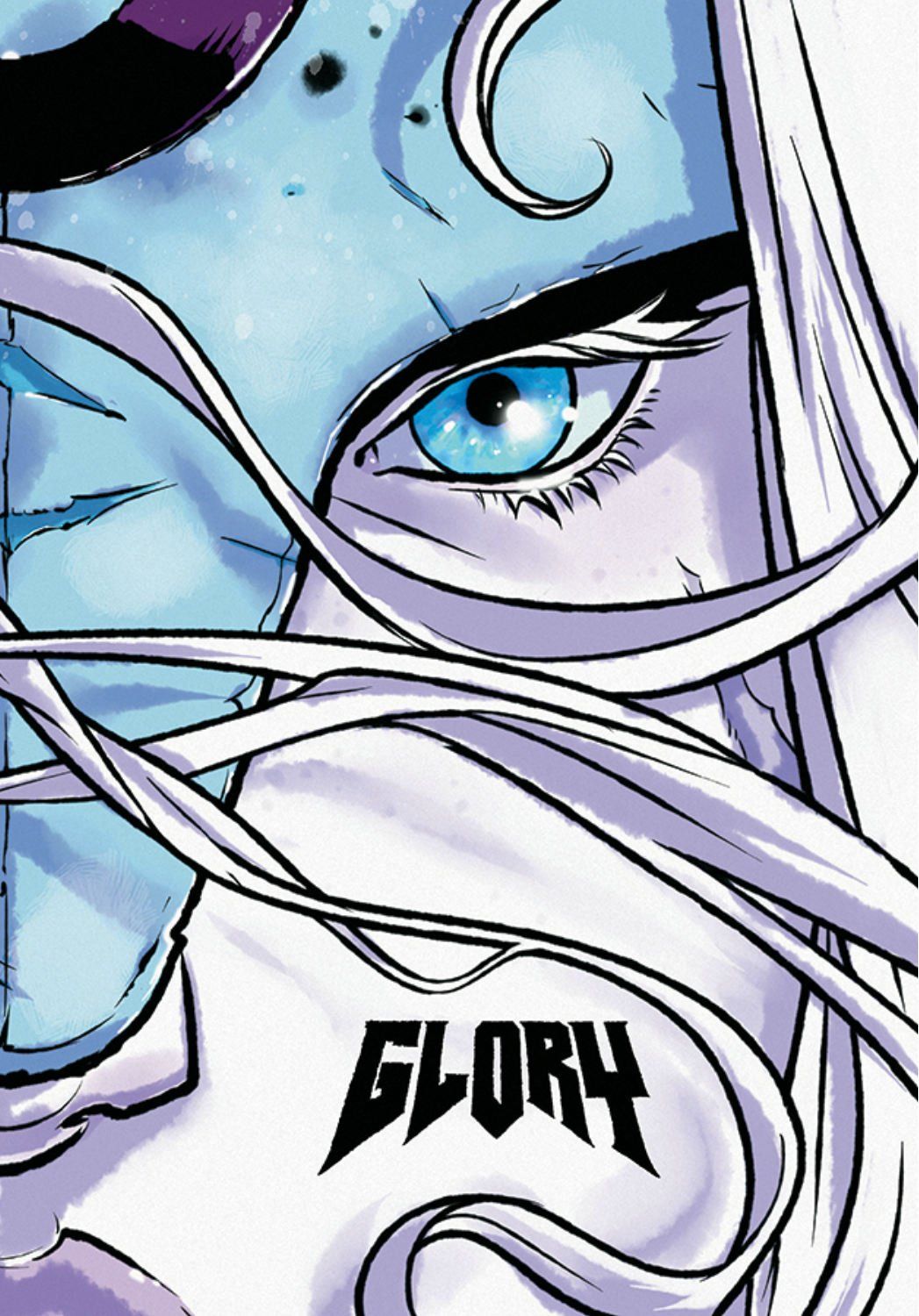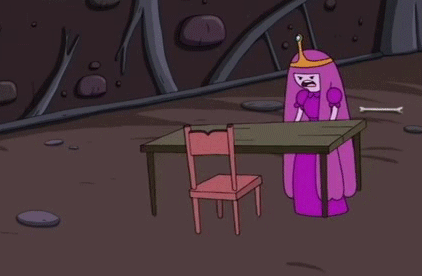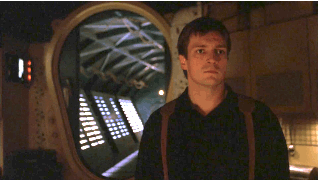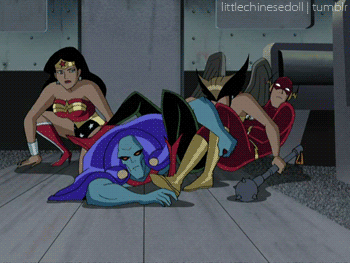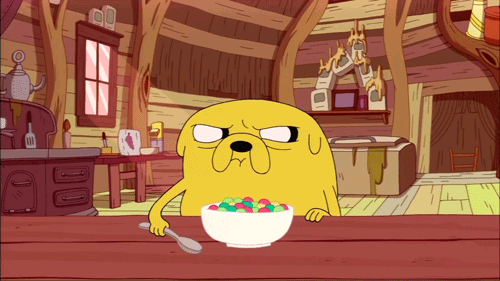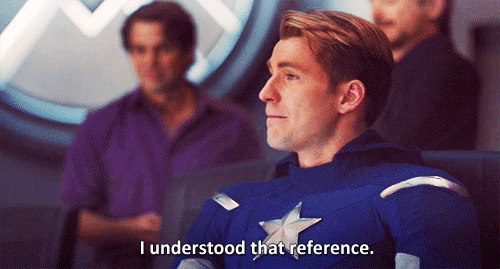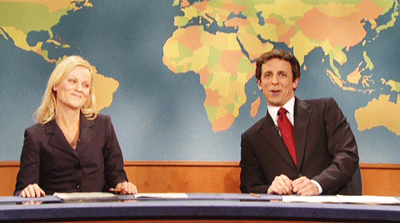Hey everyone, sorry for the absence. In addition to a lot of THINGS happening (things which I will share
as soon as I can) I was traveling for some of July and I always seem to forget that, like fine shrimp, I do not travel well (that last bit stolen from Buffy The Vampire Slayer as die hard fans will no doubt recognize).
Anyway, I have several ideas for columns stacked up in my queue (and some ideas even have words written on pages!) but today I found myself wanting to talk about writing about comics.
This is spurred by a few things – firstly, I am in a not unique…but perhaps slightly unusual position in that I have spent many years writing about comics -- on this column, over on Lit Reactor, and as a reviewer for the gold standard of comic review sites – CBR and Publisher’s Weekly. For CBR alone I wrote over 500 comic book reviews. Jeez. I feel tired just thinking about that. Anyway, all that to say, I have some experience in this “writing about comic books thing.” I’ve certainly written my fair share of reviews I’d like to revise in retrospect, some that were not well-considered enough or where I feel I could have presented my case more clearly (or kindly) but on the whole I feel proud of the work I’ve done talking about comics.
At the same time I have now written a solid number of published comic books (as well as two novels) that have had to go through the review gauntlet and so I’ve experienced this “reviewing thing” from the other side as well. And while there is a lot of truly exceptional comics commentary out there and with no disrespect intended those who do this work (I know how hard and thankless a gig it can be to write about comics) as someone who has seen both sides of this, as reviewers I have to say, we can do a lot better. Comics can sometimes do better too, but the good news is that there are reviews to tell them that. ;)
Anyway, I’ve known we can do better for a while (we all have, this is nothing new), but what prompted me to write this piece for today was that in the wake of a lot of good (and some annoying) talk about the weird imbalance we continue to see between writers and artists as creators of comics I saw a “review” of the 2012 Image series Glory that called it “Joe Keatinge’s Glory” and that is wrong on so many levels I just couldn’t ignore it.
First, let’s be clear. Glory absolutely belongs to Joe Keatinge. He did great work on it and I think he’s an interesting writer (I also happen to just like the guy). But Glory is also UNEQUIVOCALLY Sophie Campbell’s and I’m sure Keatinge would be the first person to stand up and agree. [Full disclosure for those of you not in the loop, I am both a close personal friend of Sophie Campbell and she is my co-creator/artist on Jem & The Holograms from IDW]. Anyway, seeing that headline (and I’m not going to link to the “review” because this isn’t about outing any specific people or reviews but about talking generally about how we talk about comics) I was suddenly incensed to action…and when I say action I mean sitting on my ass and writing a bunch of words. So away went those other columns and here we are.
There is no real “industry standard” when it comes to reviewing comics and while that’s nice in a way it also means there is really no quality control and even major respectable sites sometimes put out reviews that are, well…bad. So, if you’re a reviewer or a want to be a reviewer, please consider the following advice, much of which I’ve learned the hard way. Please don’t take it personally and like any advice there’s a certain amount of salt to taste. But if writing this piece makes even one bit of comics criticism better then I’ll feel pretty good about it.
While I’ve focused on a few key things here that I think are especially important, there are other good pieces out there that might be helpful to you if you write comics criticism (or hope to) here is a super informative one I like and here is another. Also, though probably not necessary for this comics savvy crowd, Dylan Meconis’s How Not To Write Comics Criticism is hilarious and super on point.
A SUMMARY IS NOT A REVIEW, A REVIEW IS NOT A SUMMARY
A summary of the things that happen in a book is not comics criticism, it’s… a summary. Summarizing what happens in a comic book is something that could double for the book jacket copy, or what goes in a not so great press release and that’s not the same thing as offering a critique – even a shallow one.
To be honest I don't know why this is "a thing" and it is a BIG thing. It's the complaint I most frequently see from creators about their reviews (it's definitely what frustrates me most, other than proper crediting of creators). As a reviewer you are mostly either talking to readers who A) have already read the book - and thus do not need a detailed summary of events that happened or B) readers who are going to read the book - and thus likely don't want the entirety of the book spoiled for them.
Summarizing without critique serves almost no purpose for anyone, even you. If you're writing comics reviews for free on your blog (or whatever) then you clearly are passionate about comics and have many thoughts about them...so why don't you want to actually share those thoughts? Tell us what the book made you feel, how it surprised you, how it let you down, why it failed, why it succeeded, how it has transformed over time, what you expect from it in the future, what makes it great, what makes it tragic, how it has ruined comics for you forever, or redeemed your faith in them forever. This is what people want to know, want to see, want to feel. And if you're someone that wants to be a writer and wants to impress readers/creators/publishers and/or build a fanbase for your critiques (as many reviewers are)...then you better actually offer critiques - this is your chance to impress people with your ability to distill facts, to convey meaning, to unpack layers, and disassemble (and reassemble) narratives, to give real thought and consideration to impressive (or unimpressive) work and make others understand why you are right in your assessment. Really think about what you read and try to share something significant about it. Now, not every comic warrants the "greatest comic book essay/think piece of all time" but you can still offer a smart and seasoned critique, even for the less dense/less important/less life changing work you review.
All that said, there’s nothing wrong with doing a light summary of content as one component of your review, and some sites (including CBR and Publisher's Weekly) even insist on it as part of the review. But if the entirety of your “review” is telling people what happened in the book then please either reconsider calling it a review, or take another swing at actually critiquing the material. A critique dissects and evaluates not just the elements of the story and how they are executed but also makes a value judgment on how well that has been done. As with anything, reviews are totally subjective so one person’s five star book can be another person’s zero star book, but you must make your reader understand WHY you give it zero or five stars.
WRITING AND ART
You have not written a comprehensive review of a comic book unless you have talked about both the writing AND the art. In any given book you may find you have more to say about one or the other, but they must both be discussed. If you’re only talking about the writing then you might as well just review novels. The BEAUTY of comics is that they are – especially when they are at their best – a perfect merging of words and art. Both of those things are needed to tell a complete story in comics and so you cannot leave one (or the other) out and consider your job well done. Sure there are some rare exceptions where comics have no words (they were still probably plotted by a writer unless the artist IS the writer) or comics where there's a lot of prose and minimal art work, but for the most part writing and art share the work and SO MUST YOUR CRITIQUE. I don’t know where this focus on writing has come from…perhaps as reviewers we are naturally writers and so we lean toward what we know and feel critical of and/or comfortable discussing? But wherever it comes from, it must stop. Artists deserve at least half the discussion. Make it happen, guys.
COLORING
First let me say, I tend to give reviewers a bit of a pass on talking about both inks and lettering. This is not to in any way suggest those jobs are unimportant - every piece of a comic is important and adds to or subtracts from the work as a whole. However, lettering and inking CAN be especially hard to distinguish even for more seasoned reviewers. Sometimes they really stand out – deliberately and wonderfully, or accidentally and horribly --and sometimes the best thing they do is to almost make you forget that they are there. Either way there is a TON to be said about these skills and the people that do this (sometimes thankless) work, but I can’t blame the average reader/critic/reviewer for not necessarily being able to pinpoint these things/creators (though they should obviously still be clearly credited) – they are sometimes incredibly subtle and not always something that can be easily digested and critiqued. Still, the critic that can manage to talk intelligently about inking and lettering will be an even more powerful and respected critic, and rightly so, so please work on this and try to master it (I never did, that's for sure).
However, while I can give a pass on inking/lettering discussion to a degree, there is NO excuse for ignoring the color work (unless the book is black and white). Comic coloring is having a kind of (extremely well-deserved) renaissance where people are finally talking about it a lot and recognizing some of the great colorists out there (there are SO MANY) but we still have a long way to go when it comes to discussing comics coloring and giving creators their due. If you wrote a review and didn’t mention the colors at all – for good or ill – then you have not finished your job. Go back and finish.
USE YOUR WORDS
Really think about what you’re saying. I am shocked by some of the dumb crap I read in reviews. Not because the opinions are something I disagree with or even because there's no logic or evidence to back up assertions (though that happens a lot too) often the sentences LITERALLY don't make sense. Like, if I sat Reviewer X down and re-read her some of the sentences in question she would definitely look at me and go, “oh my god. Yeah. That makes NO SENSE.” And listen, I get it. If you have reviews you’re assigned you have deadlines and a day job (maybe three of them) and sometimes writing a review about book X gets super tedious and you just want to turn that crap in and be done with it, I GET IT. I’ve BEEN THERE. But remember that people – creators, publishers, and readers are reading these reviews and judging YOU on them too. You’re not just judging comics, comics are judging you. Your readers will love you (including creators) for helping them discover something great (or avoid something tragic) but they will also be left with an indelible impression as to your abilities as both critic and writer. Both CBR and Publisher's Weekly (and I’m sure other large sites) are lucky to have editors to help with that quality control, but if you don’t have access to an editor make sure to AT LEAST re-read your work after stepping away from it for a while to make sure it all makes sense before you turn it in/post.
CREDITING
And it all comes back around, doesn’t it? For this is what got me so incensed in the first place. Please don’t title your review “Joe Keatinge’s Glory.” Call it “Keatinge and Campbell’s Glory” (or some such). Always give the creators their due. You can make an argument in some cases I suppose that writers often stay longer on books thanks to the nature of writing taking far less time than art and thus a writer sometimes feels like the default “creator” but with most books, Glory being a prime example, there are AT LEAST two major creative forces on board and they should be treated as such. Some reviewers/critics (and even publishers) to fix this recurring issue have gone so far as to change up the order that the names are listed in when writing reviews or publishing books. I personally don’t think you have to get that dramatic – there’s an advantage to me in the shorthand of writer/artist/colorist in that order because not only is it the order in which the comic is created, but if readers aren't familiar with the names they can still guess at which creator is in which role – but I understand the impetus. Anything that can move the needle on getting everyone credited properly and giving artists their due is a big deal. If shuffling the line up gets us to proper (and equal) crediting then I’m all for it, but it seems like we could just make sure to give the names equal space/equal size/equal everything and we could probably solve this thing.
As for my fellow comics creators. It’s great for us to push back and talk about this stuff, to encourage better and more thoughtful criticism, and to call out errors when we see them and support our fellow creators, but we also have to remember that most of these critics are underpaid (sometimes not paid at all) and often doing this in their free time and simply for the pure love of comics. And the same way that mistakes get made in our actual comics – sometimes people don’t get credited or are mis-credited, solicits are wrong, a typo sneaks through – reviewers and critics make mistakes too. So we need to be forgiving, it is divine after all (I think I read that somewhere…bumper sticker maybe?).
We’re all in this for the love of comics. So let’s remember that.
Let’s all be smarter and better and try our best but let’s also not be narcissistic dicks, okay?
Kelly Thompson is the author of the novels "The Girl Who Would be King" and "Storykiller." She's also the writer of IDW's "Jem and the Holograms," the Graphic Novel "Heart in a Box," and co-writer of Marvel's "Captain Marvel & the Carol Corps." Gifs are her favorite thing ever, as if you couldn't tell. You can find Kelly all over the place, but twitter is easiest: @79semifinalist

